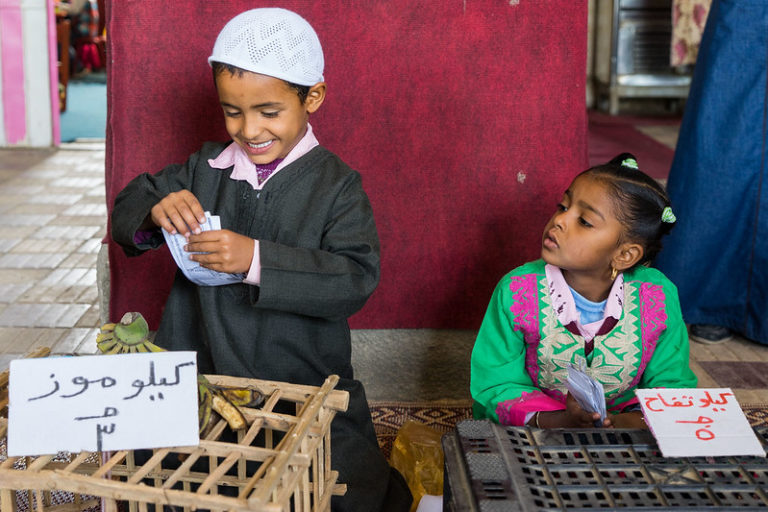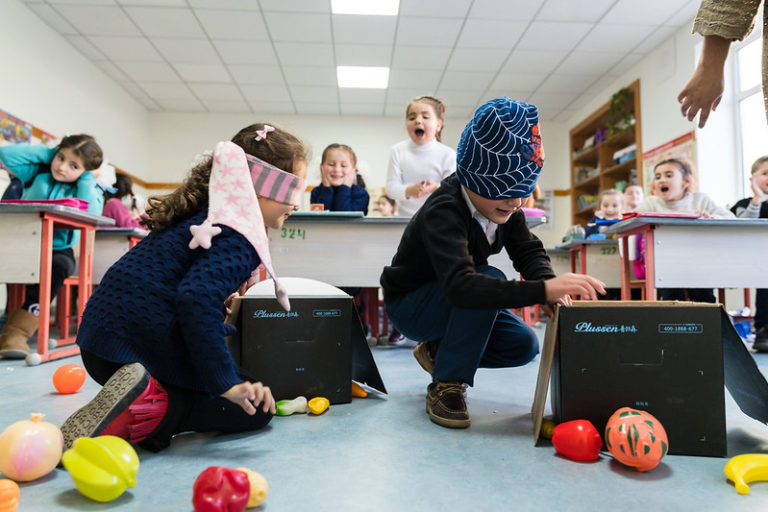The Aga Khan Foundation (AKF) recently announced the start of a three-year partnership with the LEGO Foundation, who will provide £3 million towards Schools2030.
Schools2030 will work towards a shared goal for the two foundations – enabling children and young people to engage in playful, active and holistic learning in order to develop the knowledge, skills, and attitudes they need to become creative, resilient and thriving members of a more pluralistic and inclusive society.
Through this partnership, Schools2030 aims to better understand the link between the ‘Learning through Play’ approach advocated by LEGO, amongst others, and Schools2030’s focus on holistic learning outcomes by generating ground-breaking new evidence and measurement tools that can improve quality learning outcomes, especially for the most marginalised children.
The partnership comes at a critical moment in history for the world’s education systems due to COVID-19. With more than 160 countries having implemented nationwide school closures – impacting more than 1.5 billion school‐aged children – the need for reimagining the future of learning could not be more important for frontline teachers, school leaders and students themselves.
This is a critical moment to reform our education systems. We have a responsibility to build a future in which all children can flourish and where they can engage in meaningful learning experiences that foster traditional academic skills alongside cognitive, creative, social, emotional and physical skills. This exciting partnership with the Aga Khan Foundation and Schools2030 sets out to build the evidence needed for education systems to integrate learning through play into their practices and equip today’s children to navigate the world of tomorrow.
Amy Jo Dowd, Head of Evidence, The LEGO Foundation
Schools2030 is supported by a coalition of nine founding philanthropic donors, including AKF and the LEGO Foundation. This historic coalition shares a common interest in supporting schools, teachers and learners to discover ‘what works’ to improve holistic learning outcomes, in order to catalyse locally-rooted education solutions that can inform systems-level educational change.

Drawing on these shared values, Schools2030 is excited to operationalise the LEGO Foundation’s visionary ‘learning through play’ approach at scale. The theory underpinning learning through play suggests that a child who is enjoying a meaningful activity, collaborating with others, actively engaged and experiencing some sort of agency in the process will likely become more motivated, and thus learn more, than a child who is tasked with passively learning by rote memorisation or unenjoyable experiences. This new partnership seeks to build the evidence between quality learning through play and the progression of holistic learning outcomes of young children.
With over 100 years of experience supporting education for marginalised children across the world, AKF is well-placed to test this theory. Alongside the LEGO Foundation, the Aga Khan Foundation identified the Schools2030 programme as an important opportunity to pilot quality learning through play measurement tools for both pre-primary and primary school-aged children, and to build holistic skills development across the 10 programme countries, namely Afghanistan, Brazil, India, Kenya, Kyrgyzstan, Pakistan, Portugal, Tajikistan, Tanzania, and Uganda.

The uptake and ongoing use of the learning through play tools will be continuously monitored to see how they impact children’s learning and developmental outcomes, and the data collected will support governments to better inform education policy. In this way, the programme works to put schools at the centre of social change. It is hoped that, through Schools2030’s connections to the governments in the programme geographies, the principles of learning through play and the tools piloted during this research can be quickly scaled to support more young people than ever before.
The Schools2030 programme aims to empower teachers and learners to become active change-agents, creating more playful, participatory and holistic learning experiences and reclaiming the discourse about ‘what works’ to improve quality learning outcomes from the bottom-up, rather than the top-down.
Dr. Bronwen Magrath, Global Programme Manager, Schools2030
The pandemic has exacerbated the educational inequality that characterises many education systems in both high- and low-income countries. All too often, it is the most marginalised children and young people who feel the greatest impact of educational disruption and who are most at risk of not returning to school once classes resume. The opportunity to build back better begins now. We believe that the partnership between the LEGO Foundation and Aga Khan Foundation through Schools2030 will generate ground-breaking new evidence and holistic learning measurement tools that can improve quality learning outcomes for all in the decade ahead.
